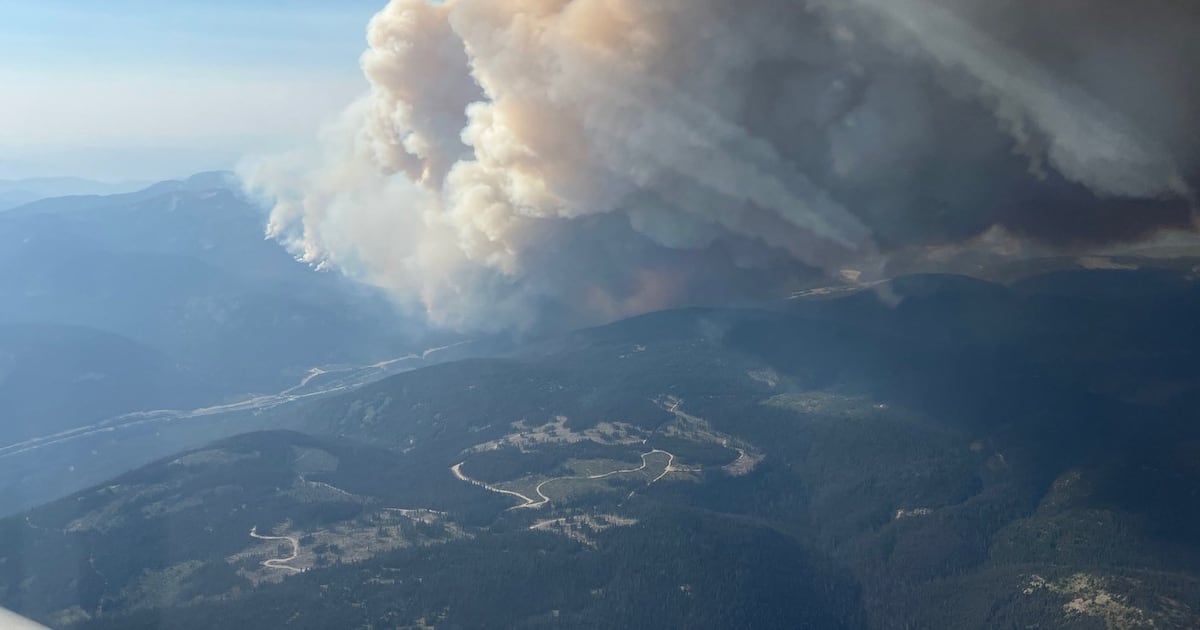Top Stories
Urgent Warning: Wildfire Smoke Deaths May Reach 1.4 Million by 2100

UPDATE: A groundbreaking study reveals that global deaths linked to wildfire smoke could surge to 1.4 million annually by 2100, even under moderate climate warming. This alarming prediction, published in the journal Nature on July 13, 2023, highlights the urgent health crisis posed by climate-induced wildfires.
Researchers used advanced machine learning techniques to forecast a 23 percent increase in global fire carbon emissions from 2010 to 2099. The findings underscore the significant health risks associated with wildfire smoke, which can drift thousands of miles, affecting populations far from the fires themselves. Co-author Bo Zheng from Tsinghua University stated, “Our key finding is that climate change will substantially increase the health burden from wildfire smoke.”
The research indicates that poorer countries will bear the brunt of these health impacts, with regions like Africa projected to experience an 11-fold increase in fire-related deaths. Sub-Saharan Africa is particularly vulnerable due to existing high levels of burnt areas across savannas and forests, resulting in disproportionate smoke exposure. Zheng noted that many of these regions have limited access to healthcare, compounding the risks.
In contrast, deaths in Europe and the United States could remain stable or potentially double by the century’s end. The study also emphasized the need for urgent action to reduce greenhouse gas emissions to mitigate these dire forecasts.
The health risks from wildfire smoke are primarily linked to PM2.5 pollutants—fine particles that can enter the bloodstream and lead to chronic diseases like bronchitis, lung cancer, and heart disease. Zheng urged for better monitoring of these pollutants to enhance public health responses.
Adding to the urgency, the study highlights a concerning lack of international cooperation in addressing the health impacts of wildfire smoke. A recent report documented that Canada’s 2023 wildfires exposed over 350 million people in North America and Europe to hazardous air pollution, likely contributing to tens of thousands of premature deaths.
As wildfires grow more frequent and intense due to rising temperatures and prolonged droughts, the time to act is now. The study not only serves as a wake-up call for global leaders but also stresses the importance of community preparedness and healthcare accessibility in vulnerable regions.
Stay tuned for further updates as this critical health issue develops.
-

 Politics4 weeks ago
Politics4 weeks agoSecwepemc First Nation Seeks Aboriginal Title Over Kamloops Area
-

 World5 months ago
World5 months agoScientists Unearth Ancient Antarctic Ice to Unlock Climate Secrets
-

 Entertainment5 months ago
Entertainment5 months agoTrump and McCormick to Announce $70 Billion Energy Investments
-

 Science5 months ago
Science5 months agoFour Astronauts Return to Earth After International Space Station Mission
-

 Lifestyle5 months ago
Lifestyle5 months agoTransLink Launches Food Truck Program to Boost Revenue in Vancouver
-

 Technology3 months ago
Technology3 months agoApple Notes Enhances Functionality with Markdown Support in macOS 26
-

 Lifestyle3 months ago
Lifestyle3 months agoManitoba’s Burger Champion Shines Again Amid Dining Innovations
-

 Top Stories2 months ago
Top Stories2 months agoUrgent Update: Fatal Crash on Highway 99 Claims Life of Pitt Meadows Man
-

 Politics4 months ago
Politics4 months agoUkrainian Tennis Star Elina Svitolina Faces Death Threats Online
-

 Sports5 months ago
Sports5 months agoSearch Underway for Missing Hunter Amid Hokkaido Bear Emergency
-

 Politics5 months ago
Politics5 months agoCarney Engages First Nations Leaders at Development Law Summit
-

 Technology5 months ago
Technology5 months agoFrosthaven Launches Early Access on July 31, 2025





















